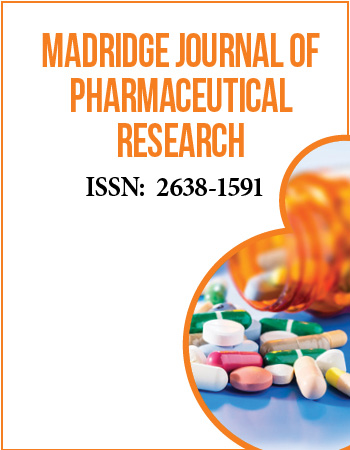International Conference on Medicinal and Pharmaceutical Chemistry
December 5-7, 2016 | Dubai, UAE
Anti-inflammatory action through inhibition of NF kB activation and translocation by band-2 isolated from Tinospora cordifolia(Thunb.) miers. in LPS stimulated RAW 264.7 cell lines
Rajiv Gandhi Centre for Biotechnology, India
Although inflammatory barrier is a critical defensive mechanism, exaggerated responses(chronic inflammation) of innate inflammatory cells, eg. macrophages, dendritic cells etc, produce serious damage leading to cancer, atherosclerosis, arthritis, diabetes and septic shock. Since inflammation involves multiple proinflammatory mediators and pathways that lead to a wide range of changes in pathology, it is difficult to target the desired area when treating inflammation. The current treatment involves use of non-steroidal anti-inflammatory drugs (NSAIDs) and corticosteroids which exert effect mainly through blockage of cyclooxygenases (COX). Of the two isoforms of cyclooxygenases (PGE2 poducing enzyme-COX), COX-1 is the constitutively expressed form required for physiologic functions and COX-2 is induced during inflammatiom. Selective COX-2 inhibition can avoid most of the toxic effects of NSAIDs like gastric erosion, inhibition of platelet aggregation etc. to an extent. Macrophages, the major inflammatory cell type, release cytokines, ROS, growth factors, chemokines, TNF-α, interleuckin-1 and MCP-1, PGE2 in response to activation signals (LPS, TNF-α) through the canonical NF kb pathway activation. So NF-κB and the signalling pathways have become a focal point for intense drug discovery. Also inactivation of MAPKs might inhibit inflammatory mediators (NO and PGE2), making them potential targets for anti-inflammatory therapeutics. Tinospora cordifolia is well known for its anti-inflammatory potential in several in vivo models, but the underlying molecular mechanism or the phytochemisry remains unknown. The isolated fraction inhibits the production of TNF-α, PGE2 and NO through cox-2 selective inhibition of p65 translocation and p38 phosphorylation. Characterization of this particular fraction will be beneficial in the treatment of chronic inflammatory condition without extensive side effects.
Biography:
Sheena Philip is a Ph. D student under Dr. Asha V. V, Scientist E-II, in Plant based bio-actives and disease division at Rajiv Gandhi Centre for Biotechnology, Thiruvananthapuram, Kerala, India. Her research work mainly focus on the isolation of bio-active molecules from herbals directed against chronic inflammatory conditions. Prior to joining as a Ph. D student, she has qualified for CSIR fellowship and she also holds a masterʼs degree and Bachelorʼs degree in Biochemistry from the University of Calicut. She has published in peer reviewed journals and presented papers in international conferences.


